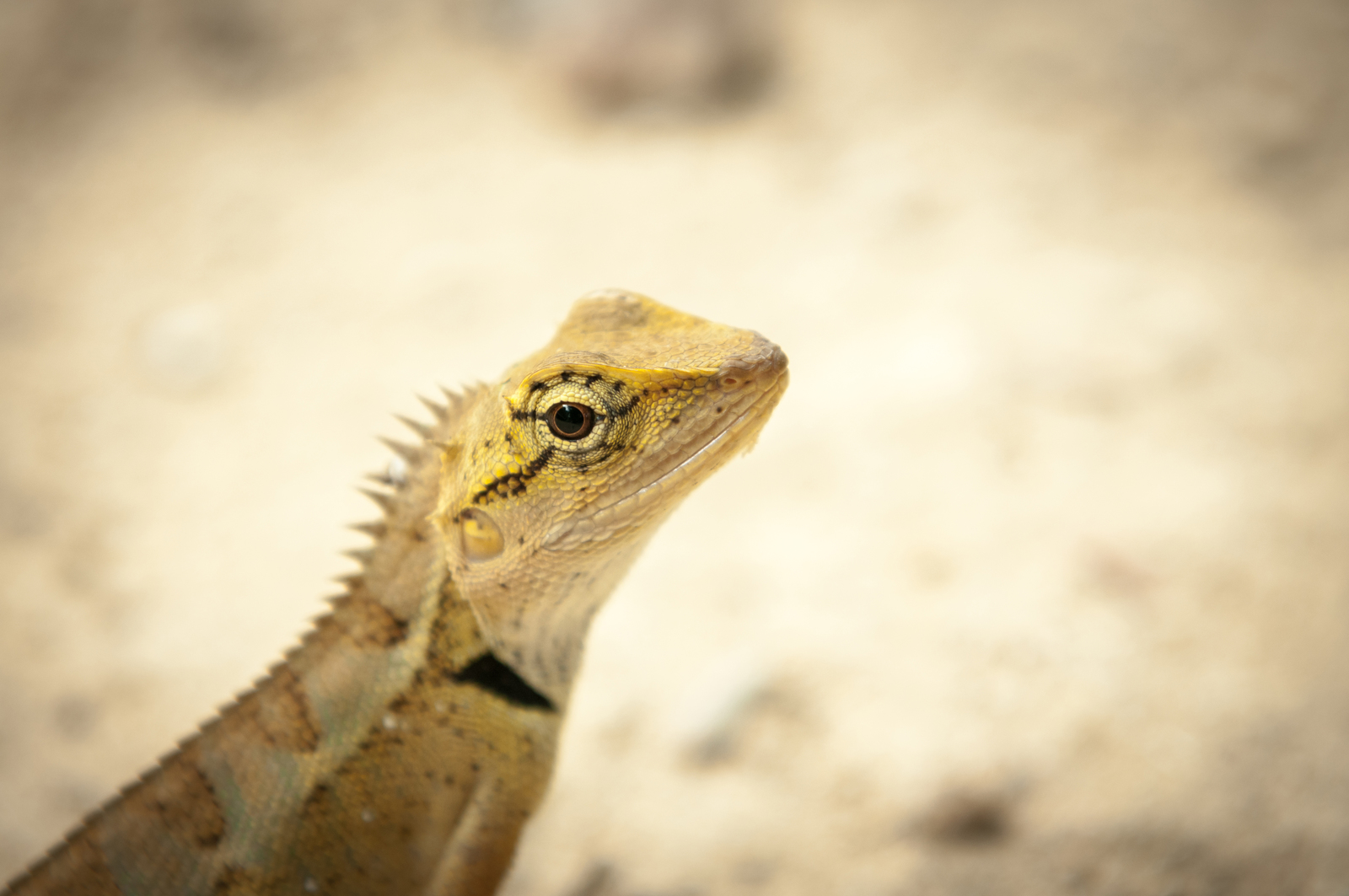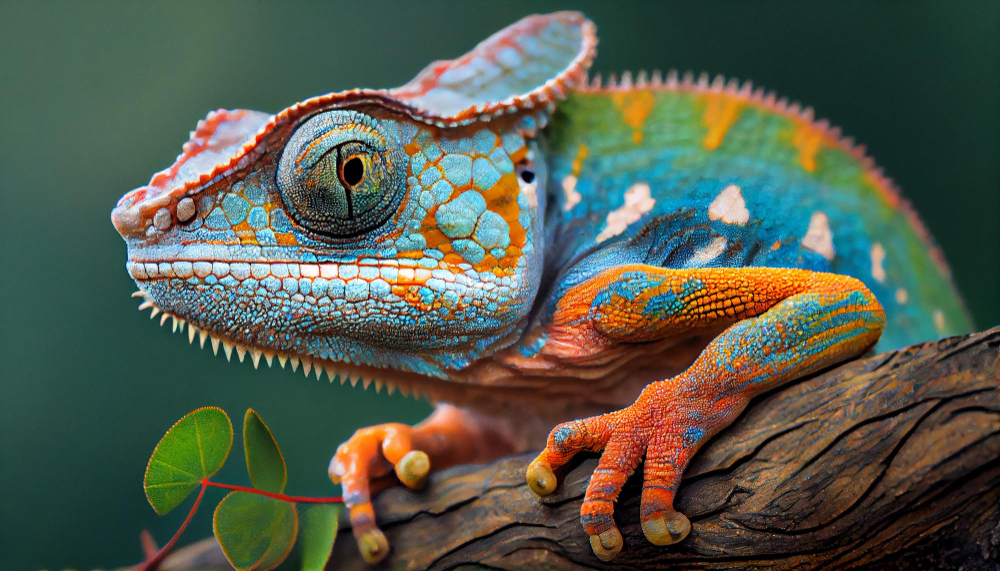Are you an iguana owner who is fascinated by the head-bobbing behavior of your pet? If so, you’re not alone! Iguanas are known for their unique and intriguing head-bobbing behavior, which can be interpreted in a variety of ways. In this article, we’ll explore 7 fascinating facts about iguana head bobbing, including what it is, why iguanas do it, and how to interpret it. We’ll also debunk some common myths and provide tips for keeping your iguana safe and healthy. Let’s get started!
Table of Contents
- What is Iguana Head Bobbing and Why Do They Do It?
- Iguana Head Bobbing: A Sign of Aggression or Affection?
- The Science Behind Iguana Head Bobbing Explained
- 5 Common Myths About Iguana Head Bobbing Debunked
- How to Interpret Iguana Head Bobbing: A Guide for Pet Owners
- Protecting Your Iguana: Risks and Precautions Associated with Head Bobbing Behavior
- Expert Advice Section
What is Iguana Head Bobbing and Why Do They Do It?
Iguana head bobbing is a behavior where an iguana rapidly bobs its head up and down. This behavior is most commonly seen in male iguanas, and is often associated with dominance and territorial behavior. However, female iguanas and juvenile iguanas may also exhibit head bobbing.
There are a few reasons why iguanas may head bob:
- Communication: Iguanas use head bobbing as a way to communicate with other iguanas. This can be a way to signal dominance, submission, or courtship.
- Thermoregulation: Iguanas may also head bob as a way to regulate their body temperature. By moving their head up and down, iguanas can increase blood flow to their head and neck, helping them cool down or warm up.
- Stress: In some cases, iguanas may head bob as a response to stress. This can include being handled too much, feeling threatened, or being in an unfamiliar environment.
Iguana Head Bobbing: A Sign of Aggression or Affection?
One of the most common misconceptions about iguana head bobbing is that it’s always a sign of aggression. While head bobbing can be a territorial or dominance behavior, it can also be a sign of affection or courtship.
When an iguana is head bobbing towards another iguana, it may be trying to establish dominance or express its interest in mating. However, when an iguana head bobs towards a human or its owner, it may be a sign of affection or recognition.
The Science Behind This Behaviour
Scientists have studied iguana head bobbing to better understand this intriguing behavior. One study found that male iguanas who head bobbed more frequently had higher testosterone levels, suggesting that head bobbing may be linked to hormonal changes.
Another study looked at the role of vision in iguana head bobbing. Researchers found that iguanas who were blindfolded or had their vision obstructed did not head bob as frequently, indicating that visual cues play a role in this behavior.
5 Common Myths About Iguana Head Bobbing Debunked
There are many myths and misconceptions about iguana head bobbing. Here are 5 common ones, debunked:
- Myth: Iguana head bobbing is always a sign of aggression.
Reality: As we’ve discussed, head bobbing can be a sign of communication, thermoregulation, stress, or affection.
- Myth: Only male iguanas head bob.
Reality: While male iguanas are more likely to head bob, females and juveniles may also exhibit this behavior.
- Myth: Head bobbing is dangerous or harmful for iguanas.
Reality: Head bobbing is a natural behavior for iguanas and is not harmful when done in moderation.
- Myth: Iguanas only head bob towards other iguanas.
Reality: Iguanas may also head bob towards humans or other animals to communicate or show affection.
- Myth: You can stop an iguana from head bobbing by punishing or scolding it.
Reality: Punishing an iguana for head bobbing can actually make the behavior worse. Instead, focus on providing a comfortable and secure environment for your pet.
How to Interpret Iguana Head Bobbing: A Guide for Pet Owners
As an iguana owner, it’s important to understand what your pet’s head bobbing behavior means. Here are some tips for interpreting iguana head bobbing:
- Observe the context: Head bobbing can mean different things depending on the situation. Is your iguana head bobbing towards another iguana, a human, or an object?
- Consider body language: In addition to head bobbing, iguanas may exhibit other behaviors like puffing up their throat or displaying their dewlap. These cues can help you understand what your iguana is trying to communicate.
- Watch for patterns: Does your iguana head bob at certain times of day or in response to specific stimuli? This can help you understand what triggers the behavior.
Protecting Your Iguana: Risks and Precautions Associated with Head Bobbing Behavior
While head bobbing is a natural behavior for iguanas, there are some risks and precautions associated with this behavior. Here are some things to keep in mind:
- Aggression: If your iguana is head bobbing towards another iguana or animal, it may be a sign of aggression. If you have multiple iguanas, make sure they have enough space and resources to avoid territorial disputes.
- Stress: Head bobbing can be a response to stress, so make sure your iguana has a comfortable and secure environment. Avoid handling your iguana too much, and provide hiding places and other enrichment activities.
- Temperature: If your iguana is head bobbing as a way to regulate its body temperature, make sure it has access to a warm basking spot and a cooler area to retreat to.
Expert Advice Section
If you’re still unsure about what your iguana’s head bobbing behavior means, consider consulting with an expert. A veterinarian or reptile behaviorist can help you better understand your pet’s behavior and provide tips for keeping them healthy and happy.
Frequently Asked Questions
- Q: What does it mean when an iguana head bobs?
- A: Head bobbing can be a sign of communication, thermoregulation, stress, or affection. It’s important to observe the context and body language to better understand what your iguana is trying to communicate.
- Q: Is head bobbing dangerous for iguanas?
- A: Head bobbing is a natural behavior for iguanas and is not harmful when done in moderation. However, if your iguana is head bobbing as a sign of aggression or stress, it’s important to address the underlying issue.
- Q: Can you train an iguana to stop head bobbing?
- A: Punishing an iguana for head bobbing can actually make the behavior worse. Instead, focus on providing a comfortable and secure environment for your pet. If you’re concerned about your iguana’s behavior, consider consulting with an expert.
- Q: Do all iguanas head bob?
- A: While male iguanas are more likely to head bob, females and juveniles may also exhibit this behavior.
- Q: Is head bobbing a sign of illness?
- A: In some cases, head bobbing can be a sign of illness or discomfort. If you’re concerned about your iguana’s health, consult with a veterinarian who specializes in reptiles.



